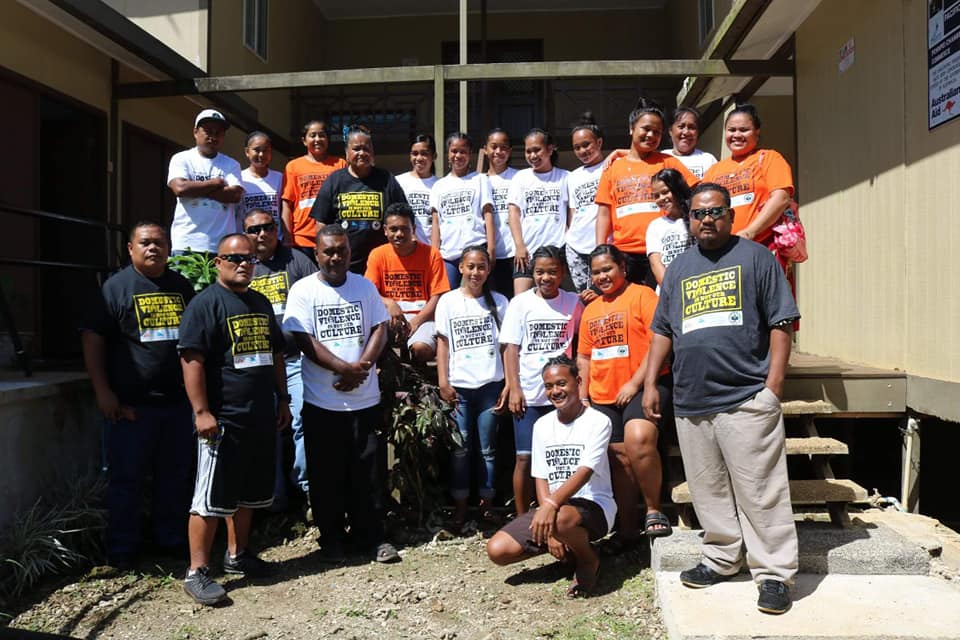

Thanks to the positive steps taken by the Care Micronesia Foundation (CMF), a civil society organisation in FSM, the Pohnpei State Legislature changed the age of consent and marriage from 16 to 18 in 2019. This action is a significant step forward for Micronesia and sends a clear signal about the region’s determination to follow the UN Convention on the Rights of the Child (CRC).
International human rights conventions are an effective way of holding states accountable and serves as a guide for national legislation to safeguard vulnerable groups in our societies. The CRC defines children as being anyone under the age 18. In line with this, the minimum standard age of marriage set by most countries around the world is usually 18.
While some countries in the Pacific have ratified the CRC and, over time, have changed their marriage laws to comply with international human rights treaties, others such as the Federated State of Micronesia (FSM) have only recently taken positive legislative action to protect children from early marriages.
According to Shelyane Lohn, former Manager of CMF, the law change in Pohnpei State was only possible through rigorous lobbying and advocacy in collaboration with churches, public health authorities and local women’s groups.
The Pacific Community’s (SPC) Human Rights and Social Development (HRSD) Division provided support to CMF’s campaign in the form of a grant under the Pacific People Advancing Change (PPAC) project, funded by the Government of Sweden.
The grant directly funded campaign activities and was complemented by advocacy training and mentoring support to help ensure an effective campaign. The campaign activities included a roundtable discussion attended by representatives of Pohnpei State Public Health, the State Legislative Committee on Health, as well as church leaders, traditional leaders, and women’s groups.
“The assistance in the form of a grant provided by SPC’s PPAC project built the capacity of CMF to advocate on this serious issue to the wider public and to important stakeholders and empowered them to lobby the Pohnpei State legislature to make this change in the age of consent a reality,” Lohn said.
“PPAC did a great job in helping us raise the age of consent and marriageable age which opened the eyes of a lot of people in FSM who are slowly adapting to this change.”
Lohn highlighted that the reasons for lobbying for this change in legislation were numerous but the most basic rationale was to ensure that children are protected from early marriages until they are mature and old enough to start their own families. Another reason was to lower the rate of teenage pregnancy which is high in FSM.
She highlighted that the majority of the four states of FSM have set the age of consent and marriage at 16 and, because of this, many young girls were being married to men who were sometimes twice their age.
In most cases, Lohn noted that “Families followed this due to the “assistance” that these men can provide for the girl’s family.”
Early marriage for these ‘child brides’ often means that they are not able to pursue their dreams of higher education and thus are not able to secure work opportunities and become economically empowered.
Being married off at a young age also meant that most young girls became teenage mothers, and this had a lasting impact on their physical wellbeing as well as the health of their babies.
Lohn added that the change in legislation will now provide much-needed protection to children, especially young girls from being married off early and can be used to dissuade families and communities from marrying off their daughters while they are still children.
Lohn said that CMF, as part of this advocacy campaign, managed to establish strong partnerships with the Pohnpei Police, Pohnpei State Government, Pohnpei Women’s Council, and youth and church groups.
While the law change in Pohnpei is certainly an achievement worth celebrating, CMF hopes to continue public education and awareness of this.
“The lobbying and advocacy to change the age of consent and marriage has created greater awareness in our students and children. I think the children in our communities and schools now realise that they too have rights that can protect them, and we wish to continue our public education and awareness campaigns until the rate of customary marriages and teenage pregnancies drop,” she added.